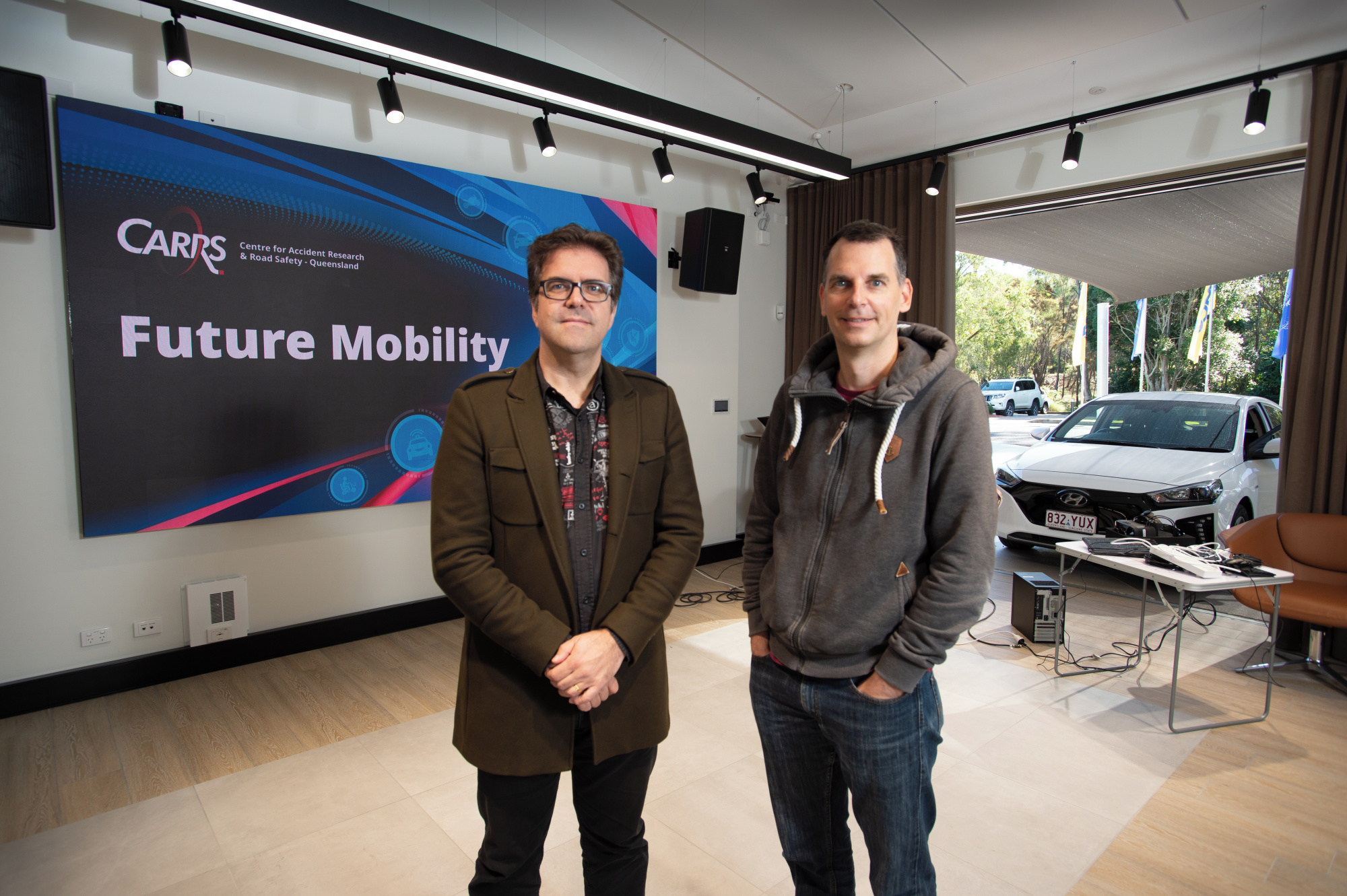QUT will create a digital twin of the RACQ Mobility Centre track that will enable drivers, fitted with augmented reality (AR) headsets, to test drive connected and automated transport systems (CATS) and other future mobility technologies in Australian conditions.
Announced today, the QUT Centre for Accident Research and Road Safety-Queensland (CARRS-Q) dynamic mixed reality environment for future mobility – DynaMix-FM – facility will include an automated vehicle, remote control and supervision equipment to simulate real-time hazards.
CARRS-Q director, Professor Andry Rakotonirainy said mixed reality road testing was indicative of how things had changed as the centre also celebrated its 25-year anniversary this week.
“We’re witnessing a major digital transformation in road safety. Research has expanded from areas of speed management to investigate the potential use of digital information and disruptive technologies.
“Future mobility such as automated vehicles for public, private and industrial applications are now on our doorstep and will be a heavy focus of road safety research into the foreseeable future.
Professor Rakotonirainy said future researchers would investigate how AI and drones could detect illegal driving behaviour, how to link the Gold Coast and Sunshine Coast with hydrogen fuelled, fully automated public buses for the 2032 Olympics, and how to reduce casualties of Indigenous men, who are five-times more likely to die on the road than non-Indigenous men.
CARRS-Q became known for its research on Intelligent Transport System (ITS) human factors and its use of advanced technology such as the Advanced Driving Simulator that uses software, projectors, and a motion platform to immerse a driver and passengers into a virtual environment with simulated vehicle motion.
DynaMix-FM takes that research on the road, blurring the lines between simulation and track tests.
It will provide unique rapid prototyping, experimentation and methodological innovation opportunities in human factors, human interactions with CATS, remote operation, environment processing and understanding, communication, and decision-making algorithms.
CATS are automated vehicles that also use wireless technology to connect and communicate with other vehicles, road and other infrastructure.
The evolving transport systems have potential to enable automated vehicles to drive safely and cooperatively to improve road safety and traffic flow.
iMOVE Australia and Department of Transport and Main Roads (Queensland) have established the first research project using DynaMix-FM facility, to evaluate the safety risk of remotely operating highly automated vehicles.

CARRS-Q chief investigator, Professor Sebastien Glaser said DynaMix-FM would help solve issues identified by the transport community, including technical, human, policy, and legal challenges to adopting new transport options.
“DynaMix-FM will enable research and development of future mobility and transport,” Professor Glaser said.
“Modern vehicles have limited automation but proven and tested remotely operated vehicles would greatly benefit public transport, freight and logistics, for example.
“The facility will also allow rigorous compliance testing of imported automated transport in our unique Australian conditions.
“We might simulate a kangaroo jumping onto the road to trigger responses from both the driver and vehicle, but hazards could also include other cars, pedestrians, cyclists, and roadside equipment.
“Virtual hazards would be introduced via the track’s digital twin from a control room, then simulated in real-time through the test vehicle’s lidar, radar and camera sensors, and driver’s augmented reality headset.”
The DynaMix-FM facility was funded through an Australian Research Council (ARC) Linkage Infrastructure, Equipment and Facilities (LIEF) grant and is connected to facilities at QUT, University of Queensland, and the University of Wollongong.
It is the latest in 25 years of achievement that has seen QUT and CARRS-Q become Australia’s leading institution for research on vehicles, accident prevention, highway accidents, and is among the top four worldwide.
Professor Rakotonirainy said CARRS-Q had proven the value of long-term vision and investment in research, and the benefits that could be derived.
“Research with impact takes time and the longevity of CARRS-Q speaks to this successfully.
“Over a quarter century we’ve helped reduce the human, economic and social costs of road crashes, and accept the challenge of ensuring the safety of future transport technologies.
“The five-year average road fatalities reduced since 1996 from 415 to 114.
“Buoyed by our successes, we continue our commitment to improving road safety and have ‘Vision Zero’ to end traffic-related casualties and injuries firmly in our sites.”






